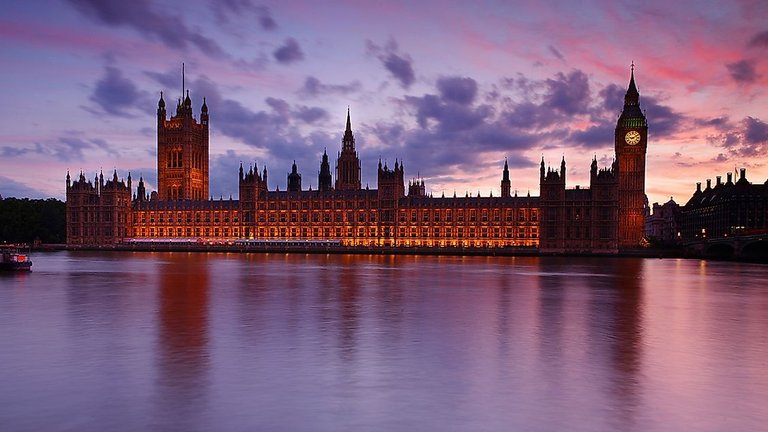
The United Kingdom’s High Court has ruled that the stablecoin Tether (USDT) is legally recognized as "property" under English law. This classification affords USDT the same legal protections as any other form of property or traditional financial asset. As a result, USDT can now be subject to contracts, seizure, and use as collateral in legal disputes.
Recognizing USDT as property means that it enjoys a clearer legal status, allowing it to be treated like other forms of property in transactions. This recognition establishes well-defined ownership rights, particularly in cases of legal disputes, bankruptcies, or contractual disagreements.
Additionally, in scenarios involving legal conflicts or insolvency, USDT holders may now have similar protections as those who hold tangible assets or other financial instruments. Creditors could potentially claim USDT as part of debt recovery processes, offering more robust legal standing for those involved with the stablecoin.
The Broader Implications of the Decision for Cryptocurrency Law in the UK
This ruling marks the first legal decision in the UK concerning the status of cryptocurrencies, following recent government efforts to clarify the legal standing of digital assets. The case that led to this decision involved a victim of fraud whose stolen cryptocurrency, including Tether, had been moved through various exchanges after being laundered via crypto mixers.

The High Court’s decision to classify Tether as property was a critical preliminary issue in a lawsuit initiated by the victim. In a judgment issued on September 12, Judge Richard Farnhill of the High Court of Justice confirmed that "USDT attracts property rights under English law," and noted that Tether represents a distinct form of property, not based on any underlying legal right. He also emphasized that USDT is subject to claims of tracing and trust, similar to other forms of property.
The ruling aligns with a 2019 decision by the same court, which had supported the classification of cryptocurrencies as property, although that case did not proceed to a full trial. It is also consistent with the 2023 report from the Law Commission of England and Wales, which classified digital assets as property.
The Fraud Case and Its Legal Challenges
The case at hand was brought by Fabrizio D’Aloia, a fraud victim seeking to recover stolen assets, including 400,000 USDT traced to the Thai crypto exchange BitKub. Despite successfully tracing his assets, D’Aloia was unable to convince the court that BitKub had wrongfully received his Tether due to the involvement of a crypto mixer, which had obscured the transaction trail.
The ruling underscores the importance of providing well-documented evidence in cases related to crypto fraud. The use of mixers, which anonymize transactions, makes it significantly more difficult for victims to prove ownership or track their assets through exchanges, complicating the legal recovery process.
UK Introduces New Cryptocurrency Legislation

This landmark decision comes in the wake of the UK government introducing a legislative bill aimed at clarifying the legal status of digital assets, including non-fungible tokens (NFTs), cryptocurrencies, and carbon credits, as "things" or "personal property" under the country’s property laws.
The UK has been stepping up its regulatory efforts in response to several high-profile cryptocurrency failures over the past year. The Financial Conduct Authority (FCA) now oversees crypto-related activities, focusing primarily on anti-money laundering (AML) measures and consumer protection.
Regulatory Measures for Cryptocurrency Firms
Last year, the FCA implemented new rules requiring cryptocurrency firms to register with the financial regulator and have their marketing materials approved by an FCA-authorized company. Key updates to these regulations include the requirement for firms to provide clear warnings to customers about the risks involved in cryptocurrency investments.
The FCA has issued strong warnings to firms that failure to comply with these regulations could result in severe penalties, including unlimited fines and up to two years in prison for both domestic and foreign exchanges operating in the UK. This has prompted major crypto exchanges such as Coinbase, Revolut, and Binance to update their mobile and web applications to ensure compliance with the new regulations.
The Significance of the Court Ruling and Future Regulatory Landscape
This court ruling significantly advances the legal status of cryptocurrencies in the UK, setting a precedent for future legal cases involving digital assets. It solidifies the idea that stablecoins like Tether are more than just digital representations of value—they are treated as property that can be legally protected, transferred, or seized. This decision provides greater legal clarity for investors, businesses, and legal professionals dealing with cryptocurrencies.
Moreover, the introduction of new legislation by the UK government and the enhanced role of the FCA demonstrate a clear commitment to establishing a more regulated and transparent environment for cryptocurrency activity. These moves are likely to provide greater investor confidence, foster innovation, and reduce the risks associated with digital asset ownership and trading.

This ruling and the accompanying regulatory developments mark a significant step forward in the legal recognition and protection of digital assets in the UK, signaling a more mature and structured framework for the evolving cryptocurrency market.